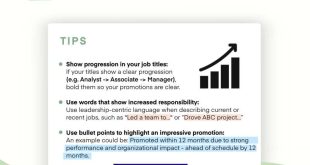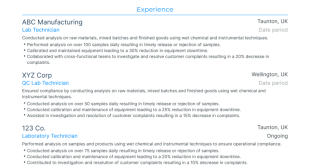Find A Mortgage Loan Officer – When you’re looking for a mortgage, you have two options when it comes to getting a professional to help you through the process: a loan officer or a mortgage broker.
The roles are similar. Both the loan officer and the mortgage broker will ask questions about your financial situation and help you complete and process your mortgage application. But in other respects their roles are very different.
Find A Mortgage Loan Officer
Loan officers work for a bank, credit union or other mortgage lender and provide mortgage programs and interest rates only at that institution. A mortgage broker works on behalf of the borrower to find the best interest rates and loans from a range of organisations.
Mortgage Loan Officers
Loan officers may receive a commission for successfully processing your application. The mortgage broker charges you, the bank, or both a commission and a fee.
Loan officers work for mortgage lenders. Their job is to explain the options available to lenders and help borrowers through the mortgage application process.
Loan officers must have extensive knowledge of loan products, banking industry rules and regulations, and the documents required to obtain a loan. They are often referred to as mortgage loan specialists because it is the most difficult and expensive type of loan that most consumers encounter.
Loan officers are knowledgeable about the different types of loans offered by the financial institutions they represent and can advise borrowers on the best options for their needs based on their financial circumstances. Once the borrower and loan officer agree to proceed, the loan officer will help prepare the application.
Amazon.com: Loan Officer Definition Funny Mortgage Loan Officers T Shirt
The loan officer then sends the application to the institution’s underwriter, who assesses the potential borrower’s creditworthiness. If the loan is approved, the loan officer is responsible for preparing the appropriate documents and loan closing documents.
Some loan officers are compensated in the form of commissions. This fee is an upfront fee and is usually negotiable. Commissions on mortgage loans are often higher than on other types of loans.
It is important to know that large banks work exclusively through their loan officers. A mortgage broker will not be able to offer their product.
Loan officers usually work for only one financial institution and can only borrow from their employer. They may lower your rates and fees, but your options are limited by that company’s services.
What Are The Pros And Cons Of Being A Mortgage Broker?
Mortgage brokers work with a wide range of financial institutions and can offer a wide selection from banks, credit unions and other mortgage lenders.
A mortgage broker is a matchmaker. They search for the best mortgage product for the borrower’s financial situation and then match borrowers with lenders that offer them. Mortgage brokers also collect documents from borrowers and forward them to mortgage lenders for underwriting and approval.
A mortgage broker can save borrowers time and effort during the application process and can save a lot of money over the life of the loan. What’s more, some lenders work exclusively with mortgage brokers, providing borrowers with access to loans they wouldn’t otherwise have. In addition, brokers can get lenders to waive application, due diligence, origination and other fees.
However, the number of lenders that a broker can contact is limited to those institutions that have approved their services. Borrowers are best served by doing some of the legwork required to find the best deal themselves.
The Pros And Cons Of Being A Mortgage Loan Officer
Mortgage brokers receive commissions from borrowers, lenders, or both. These fees, known as origination fees, are typically 1% to 2% of the loan amount. Mortgage brokers must be licensed to do their job, and they must disclose their fees upfront.
A mortgage broker can save you a lot of money over the life of your mortgage. However, you should still do some research first to find out about the options available.
When you work with a loan officer, you are dealing directly with the institution that will lend you the money. When you work with a mortgage broker, you are working with a third party. A broker does not lend you money, but facilitates the process between you and the lender.
Loan officers can only help you apply for loans offered by their employer. Mortgage brokers deal with many lenders and can find the best deal for your situation.
When Should Homebuyers Work With A Mortgage Broker?
In any case, you will be paid a commission and some fees. You may ask what they will be.
Whether you use a broker or a loan officer, you can find out what fees and charges you have to pay on the second page of the credit estimate you get when you apply for a loan. It will be listed under Loan Costs under A: Origination Fees.
Applying directly through a loan officer has advantages. Because they work for the lender, you can get a discount on their interest rates and closing costs. You may be eligible for an exemption based on your unique income and financial circumstances, and you’ll have access to any Advance Payment Assistance (DPA) programs for which you qualify.
Do not appear. Loan officers work for a bank or other financial institution and offer only that institution’s mortgage products. A mortgage broker works with several financial institutions and tries to find the best product for the applicant’s needs.
Find A Mortgage Loan Officer
Do not appear. Both mortgage brokers and loan officers are considered mortgage lenders (MLOs) and must meet strict federal requirements to assist in mortgage loan negotiations.
The bank’s credit specialist can only recommend the bank’s products. Mortgage brokers work with many lenders and can find you a better deal.
Remember that you will pay for the services of any professional through the loan origination fee specified in your mortgage application.
If you decide to work with a loan officer or mortgage broker, pay close attention to the fees and commissions they charge.
Mortgage Seo Guide
Before you meet with one of them, spend some time researching the best deals available at the time and the types of loans available. You will have to pay your mortgage over a long period of time, and it makes sense to get it right.
Ask writers to use primary sources to support their work. This includes official documents, government data, original reports and interviews with industry experts. We also cite original research from other reputable publishers when appropriate. You can learn more about the standards we adhere to in creating accurate, unbiased content in our editorial policy. An appraisal is an important step in the home buying process. Appraisals inform buyers, sellers and lenders of a home’s value and are designed to ensure that buyers and lenders don’t overpay for a property. Appraisers determine a home’s value by looking at a variety of factors, including size, condition, location, number of rooms and comparable sales in the area.
The validator must be an impartial third party and not care about the results, so the evaluation can be considered fair. As long as the appraiser determines that the value of the home is equal to or exceeds the asking price of the home, the sale can proceed. If the house is appraised at a lower price, it can slow down or stop the process.
Understanding loan appraisals is key to recognizing and avoiding inflated appraisals. In this guide, we’ll discuss the credit appraisal process, who applies for them, the warning signs to look out for, and more:
Comparing Rocket Mortgage Vs. Local Bank For A Mortgage
A seller, buyer, real estate agent, homeowner or lender may request an appraisal as all parties have an interest in determining the home’s value. However, each person may have a different reason for requesting an assessment:
It may take several appraisals to negotiate the best deal. While a home does not typically require multiple appraisals, any of the three parties involved can request an additional appraisal if deemed necessary.
Depending on the size and complexity of the home, the appraisal may take less than an hour or two. An appraisal is also one of the first steps in the closing process. You’ll even need an appraisal for a home you haven’t built yet.
At this stage, a professional appraiser will carefully inspect the property, examining the exterior and interior condition in order to determine the fair market value or fair value range. . They will document any conditions that negatively affect the value of the property. For example, if your home is in need of repairs, it can negatively affect the value of the property. Appraised value is what the property should sell for in the market.
Improving Customer Acquisition With Find A Loan Officer In Six Steps
At a sale, the appraisal fee is usually paid by the borrower and can cost several hundred dollars. Due diligence may also be required in a refinancing transaction to ensure that the lender does not lend the borrower more than the value of the property.
The appraiser must be certified or licensed, familiar with the area, and impartial and disinterested in buying and selling. The appraiser must have reliable experience in appraising similar objects
Being a mortgage loan officer, mortgage loan officer leads, becoming a mortgage loan officer, chase mortgage loan officer, how to become a mortgage loan officer, mortgage loan officer careers, pnc mortgage loan officer, mortgage loan officer tools, mortgage loan officer classes, how to find a mortgage loan officer, mortgage loan officer marketing, mortgage loan officer course



